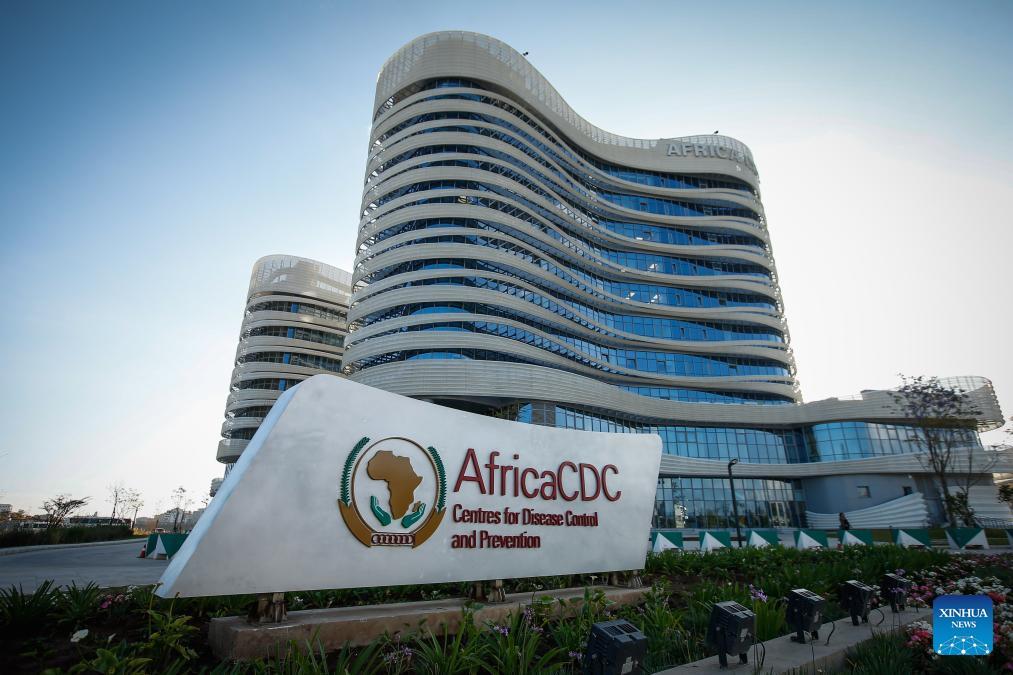Africa-Press – Botswana. The Ministry of Health, in collaboration with the Africa Centres for Diseases Control and Prevention (Africa CDC), launched the second phase of the Saving Lives and Livelihoods (SLL) programme to strengthen the primary healthcare system.
The initiative will be implemented in two districts of North West and Kgalagadi South by District Health Management Teams and it will focus on immunisation of infants under-five as well as protecting priority groups, integrating COVID-19 management into routine immunisation and pandemic preparedness.
Speaking during the launch on Wednesday, AMREF Health Africa representative, Mr Bryan Ngambi, said Phase II of the Saving Lives and Livelihoods programme would be a continuation of the commitment made under Phase I and would primarily focus on finishing the job.
The first phase was launched in 2021 to save lives by purchasing COVID-19 vaccines and to ensure long term health security for Africa. In the second phase, he said, the partnership expands its scope and scale focusing on complementing the vaccination of healthcare workers and vulnerable groups and building a robust workforce of community health workers.
Outlining the objective of the SLL programme, Mr Ngambi said it would protect healthcare workers and other priority groups, integrate COVID-19 management into routine immunisation as well as help in preparing for the next pandemic and strengthening Africa CDC capacity.
“We are very much delighted to work with the ministry in Botswana and all stakeholders to support the health ministry’s efforts of protecting vulnerable groups from future COVID-19 pandemics and also support integration of COVID-19 management into routine immunisations,” he added.
Public health specialist, Dr Keatlaretse Siamisang, appreciated the partnership with Africa CDC saying their mandate was to ensure health security and to achieve that, it was important to have effective vaccination which he said were cost effective prevention intervention.
He cited that Africa CDC in phase one managed to protect the population at risk by limiting the impact and managing COVID-19 and acknowledged the organisation for supporting African member states including Botswana to strengthen vaccination and data access. In Botswana, he said, the programme was launched in 2022 and worked wonders as they made significant strides in protecting the people through vaccination particularly at risk population including health workers from COVID-19 pandemic.
“We are pleased that in phase II, we will be able to implement the programme in two districts being North West and Kgalagadi South. We deliberately chose these districts looking at our indicators particularly routine immunisation and vaccine preventable disease surveillance indicators to say where we should focus efforts and activities to ensure maximum impacts,” Dr Siamisang said.
Although, they wanted to cover the whole country but because of budget constraints, they decided to focus on the two districts to cover areas which were hard to reach.
In the North West, there were areas where DHMT was limited in terms of resources to provide vaccination services because of the terrain but acknowledged that through their partnerships they strove hard to ensure every child had access to vaccines.
Globally, vaccines, were pivotal in eliminating some diseases that had the worst impact such as smallpox and polio, adding that because of vaccine, they managed to eradicate such diseases.
Dr Siamisang also said Botswana achieved a lot through vaccination, including unprecedented saving of many lives and prevention of morbidity and mortality.
“Through this project we should work together as implementing partners to ensure that no child is left behind and we are going to take lesson learned to other districts to ensure our children are protected. Our success depends on everyone doing their part,” he said.
Deputy District Commissioner, Mr Ramogaupi Gaborekwe, challenged DHMTs from the two districts to aim to achieve 100 per cent target towards project implementation saying they should do more with the little they had.
For More News And Analysis About Botswana Follow Africa-Press






